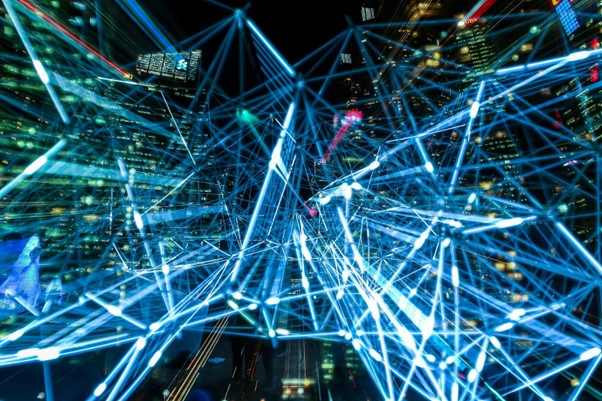The Impact of AI on the Future of Cryptocurrency: Revolutionizing the Blockchain Landscape
AI’s Impact on the Cryptocurrency Sector
The global artificial intelligence market is projected to reach an impressive $2,407.02 billion by 2032, based on a valuation of $371.71 billion. This growth highlights the influence AI is poised to have across various sectors, including cryptocurrency. According to The Business Research Company, the generative AI market in cryptocurrency is expected to expand from $760 million in 2024 to $1.02 billion in just a year, marking a compound annual growth rate (CAGR) of approximately 34.5%. Given AI’s exceptional computational capabilities, it is adept at extracting significant insights in real time.
For instance, when considering the price of ADA, AI tools can assist traders by providing informed predictions regarding future price shifts by integrating historical data, market trends, and various data points. This is only the beginning of AI’s transformative role in the sector.
Enhancing Security Measures
Cyberattacks continue to rise, with the cryptocurrency sector facing its share of challenges. Currently, there are around 940,000 cyberattacks daily globally. Within the industry, private key breaches have notably increased, accounting for nearly half (43.8%) of stolen cryptocurrency in 2024, alongside a rise of about 21% in total stolen funds that year. The constant evolution of malicious tactics means that neglecting cybersecurity can lead to serious repercussions, particularly for cryptocurrency exchanges that risk losing security-conscious clients. Research indicates that approximately 21% of customers do not return to brands affected by cybersecurity breaches.
For companies in the fiercely competitive cryptocurrency market, such losses can be detrimental, and recovery efforts post-attack are often daunting. An IBM study suggests that recovery can cost companies at least $4.88 million, prompting many cryptocurrency firms to seek AI-driven protective measures. AI shines in pattern recognition, enhancing its efficiency in detecting fraud by analyzing data such as transaction records and IP addresses in real time. Recently, blockchain analytics firm Elliptic identified potential money laundering on the Bitcoin network by training an AI model on approximately 200 million transactions.
The Rise of AI Trading Bots
Processing extensive datasets necessary for making accurate trading decisions or detecting anomalies is a complex task often marred by errors and delays. However, AI excels at quickly analyzing vast quantities of information, providing quicker insights compared to human analysts. As a result, many cryptocurrency traders are increasingly turning to AI, contributing to the expansion of the AI cryptocurrency trading bot market, valued by Research and Markets at $40.8 billion. If this trend persists, projections suggest the market could soar to $985.2 billion, reflecting a CAGR of 37.2%.
These bots can analyze data from social media sentiment to global news, enabling predictions that give traders a competitive advantage. Nonetheless, this does not guarantee 100% accuracy; ongoing oversight and strategic adjustments are crucial to mitigate the risk of erroneous predictions.
Challenges Ahead
A publication by ResearchGate highlights that data poisoning can diminish the classification accuracy of fraud detection models by 22%. Such manipulations can exploit AI systems, potentially facilitating fraudulent transactions. Another prevalent issue is the “black box” problem associated with AI algorithms, where a lack of transparency around decision-making can cause trust to wane. In the cryptocurrency industry, where trust is paramount, this perception can render trading bots suspect; with 40% of cryptocurrency holders expressing doubts about digital currencies, according to Security.org.
Additionally, the inherent volatility of cryptocurrencies and unpredictable socio-economic factors can pose challenges to AI’s predictive capabilities. If AI’s analytical prowess is overestimated, the financial implications could be severe, complicating trading strategies. Nonetheless, future advancements may address these obstacles, with many experts anticipating that AI will play a dominant role in shaping the future of the cryptocurrency industry.
Enhancing security protocols can be achieved through real-time monitoring solutions. By leveraging AI technology, organizations can identify potential attacks before they escalate, effectively preventing considerable financial repercussions. Additionally, the computational power of artificial intelligence can aid investors in refining their prediction capabilities. Through the collection and examination of data from an extensive array of sources, this technology provides immediate insights that were previously unattainable.
Artificial Intelligence
The AI Blockchain: What is It Really?
The concept of the AI blockchain integrates artificial intelligence with blockchain technology, creating a secure environment for data sharing and privacy. This synergy promises to enhance the reliability of AI systems while maintaining the transparency that blockchain offers.
Apple’s Strategic Move in AI
Apple has recently made its core AI model available to developers, signaling a strategic shift in its approach during the WWDC event. This initiative aims to foster innovation and collaboration within the developer community while ensuring that Apple’s AI technologies remain at the forefront of the industry.
Legal Challenges in AI Development
Ethical concerns surrounding artificial intelligence are escalating, exemplified by Reddit’s lawsuit against Anthropic. The complaint highlights the unauthorized scraping of user data to train AI models, raising critical issues around privacy and consent in the evolving landscape of AI technology.
Stay Updated!
Get our premium content and the latest tech news delivered directly to your inbox.
Explore More
For additional insights, check out our sections on Applications, Companies, Deep & Reinforcement Learning, and more. Stay informed about the latest trends and discussions in artificial intelligence, machine learning, and related fields.
Countries and territories include:
- Åland Islands
- Jan Mayen
- Sweden
- Switzerland
- Syria Arab Republic
- Taiwan
- Tajikistan
- Tanzania, the United Republic of
- Thailand
- Timor-Leste
- Togo
- Tokelau
- Tonga
- Trinidad and Tobago
- Tunisia
- Turkmenistan
- Turks and Caicos Islands
- Tuvalu
- Türkiye
- US Minor Outlying Islands
- Uganda
- Ukraine
- United Arab Emirates
- United Kingdom
- United States
- Uruguay
- Uzbekistan
- Vanuatu
- Venezuela
- Viet Nam
- Virgin Islands, British
- Virgin Islands, U.S.
- Wallis and Futuna
- Western Sahara
- Yemen
- Zambia
- Zimbabwe
By submitting your email, you agree to our Terms and Privacy Notice.






